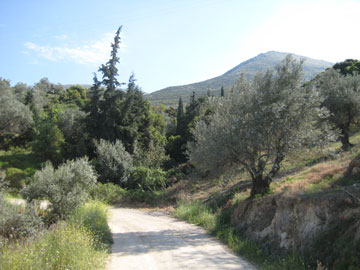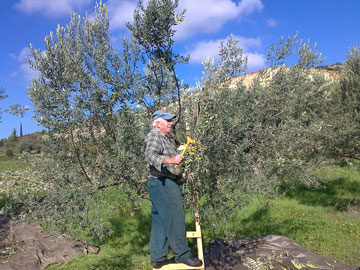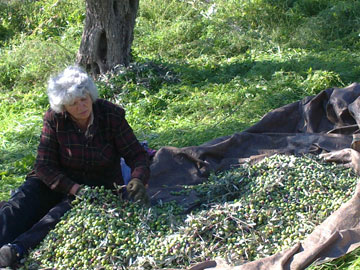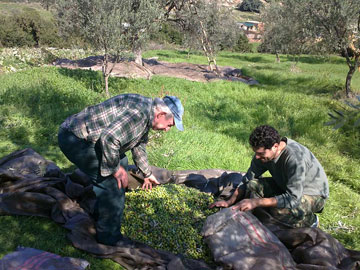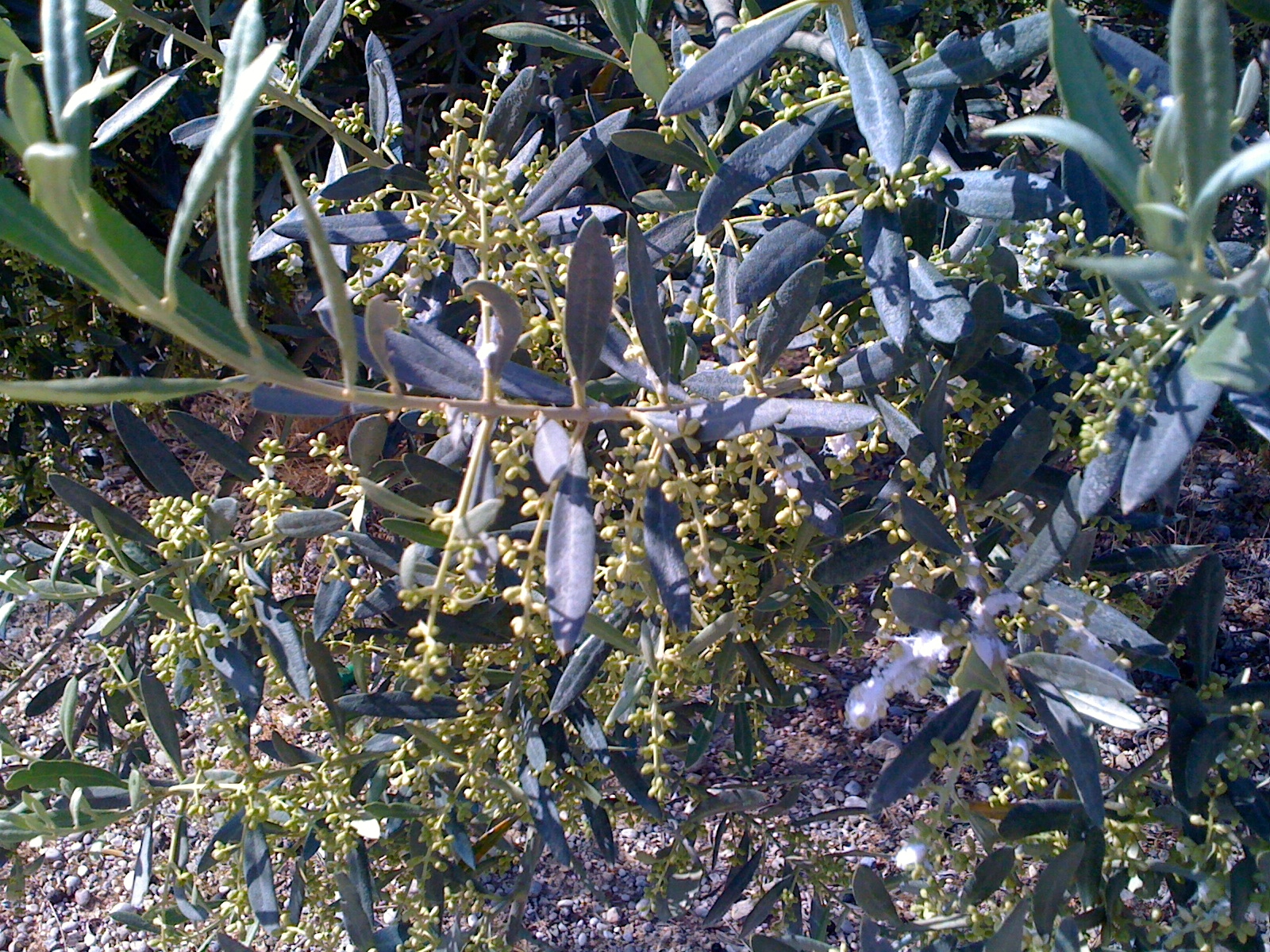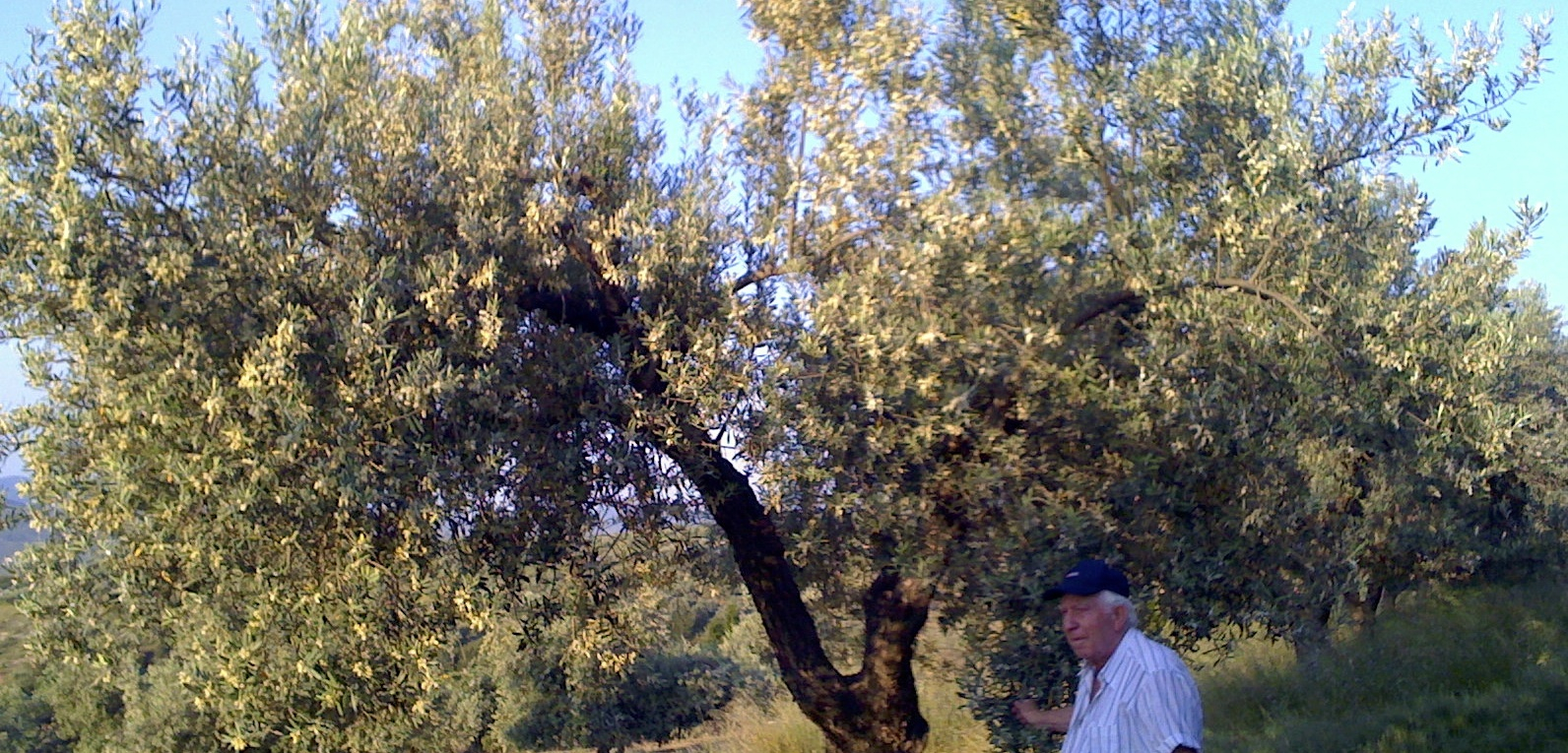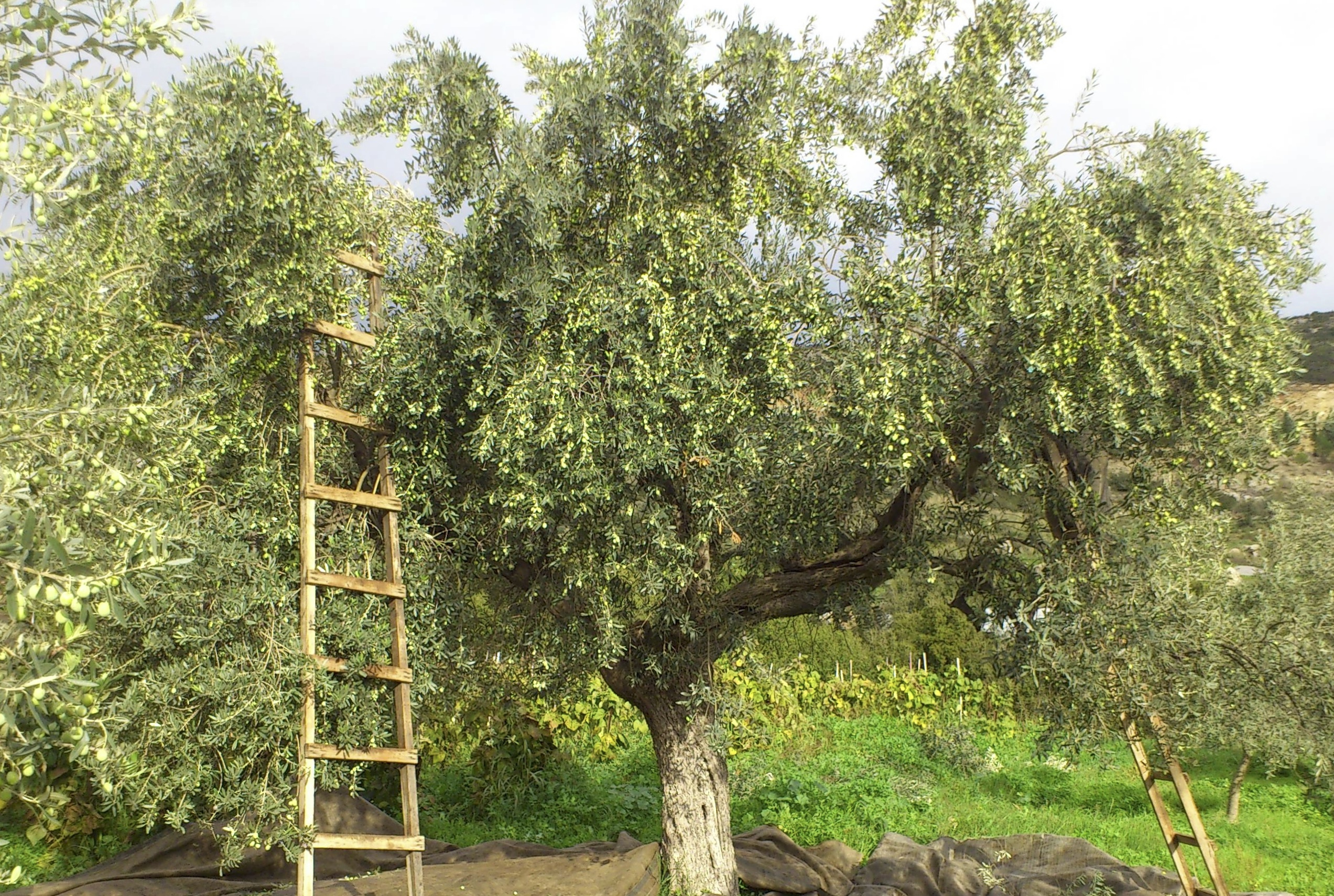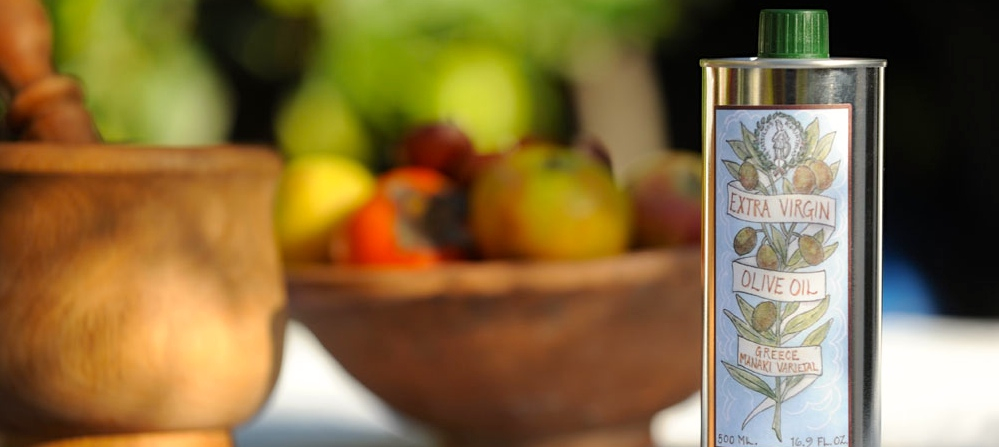For longer than patriarch Theofanis Tagaras can remember, generations of our family have tended our olive groves using the same traditional organic methods in the white soil of the upper reaches of the village of Agios Vassilios, Greece making an exceptional olive oil once reserved only for family and friends.
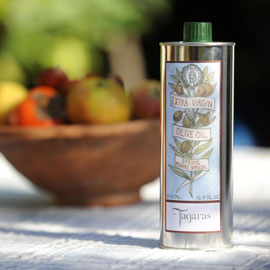 The locals call this area the Platana — named for the plane trees
that once grew here in abundance. The chalky white soil in this area
is known for producing exceptionally good olive oil — rich, thick
and flavorful. Our Manaki varietal trees are especially well suited
to the micro-climate of the area with its higher elevation, colder winters
and cooler summers.
The locals call this area the Platana — named for the plane trees
that once grew here in abundance. The chalky white soil in this area
is known for producing exceptionally good olive oil — rich, thick
and flavorful. Our Manaki varietal trees are especially well suited
to the micro-climate of the area with its higher elevation, colder winters
and cooler summers.
Our groves are planted with trees spaced widely apart following the natural contours of the landscape and allowing the roots to range freely. The trees are irrigated only by the rain clouds that blow in off of the Bay of Corinth and whatever soil moisture the roots can find in an area that has abundant natural springs. The result is a smaller yield of oil, but with greater intensity of flavor and a rich golden glow.
The olive trees begin to flower in April while the groves are still carpeted in springtime flowers and scented by wild chamomile and thyme. By May, the olives start to form. As nature runs its course through spring and summer, the Tagaras family carefully monitors the progress of the groves.
Patriarch Theofanis Tagaras watches with a keen eye as the olives begin to develop. Harvest time — generally in early November — is determined by sight and touch as the olives turn a golden green flecked with purple and just begin to soften. This timing is critical to achieving a well balanced oil.
The Tagaras olives are harvested completely by hand with wooden ladders propped carefully in the trees so as not to damage tender branches. The olives are combed off of the branches and onto canvas sheets placed under the trees. At the same time, some gentle grooming and pruning of the trees is done in preparation for the next season.
The olives are carefully picked through and sorted to remove any that are damaged or bruised while still on the canvas sheets and then placed into burlap bags for transfer by tractor to the olive press within hours of being picked.
The olives are then washed and immediately cold pressed under careful supervision. After pressing, the unfiltered extra virgin olive oil is left to decant in stainless steel tanks allowing sediments to rest at the bottom before it is bottled in the Tagaras can. The can provides protection from light and oxidation, helping to preserve the freshness and vitality of the oil. Tagaras unfiltered extra virgin Manaki varietal olive oil is vividly fresh and peppery with a long buttery finish.
Visit the Stockists page to learn where Tagaras Artisanal Greek Olive Oil can be purchased.
